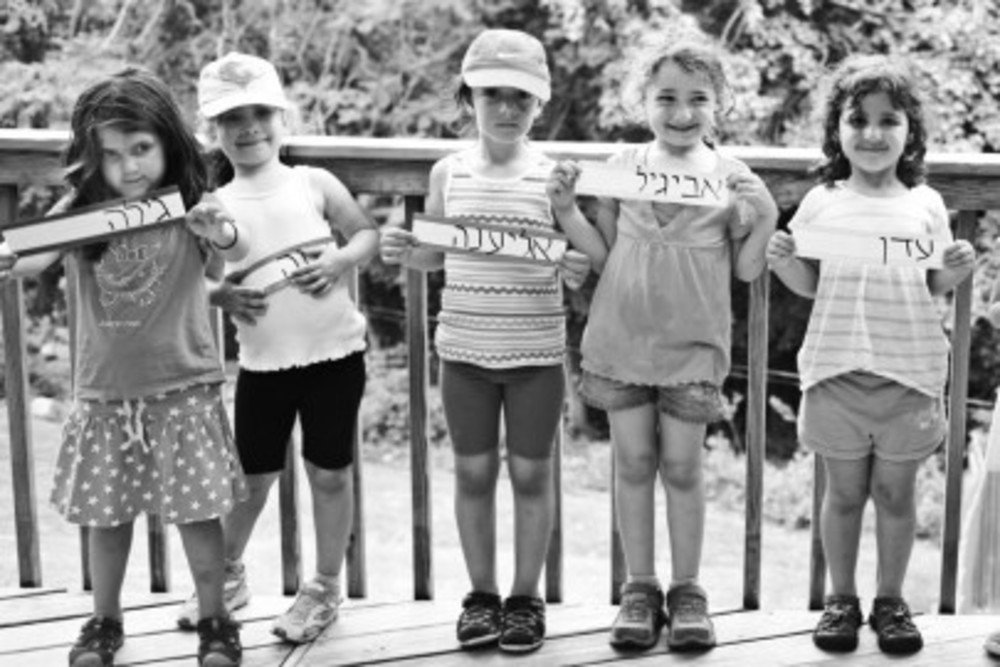In Hebrew immersion day camps, summer fun augmented with learning
 JTA – It used to be that parents who wanted to expose their children to conversational Hebrew over the summer had to travel to Israel. Now a growing number of American Jewish day camps are offering Hebrew-immersion programs, where kids do the standard day camp activities – swimming, arts and crafts, music, zip-lining and field trips – but “hakol b’ivrit” [all in Hebrew].
JTA – It used to be that parents who wanted to expose their children to conversational Hebrew over the summer had to travel to Israel. Now a growing number of American Jewish day camps are offering Hebrew-immersion programs, where kids do the standard day camp activities – swimming, arts and crafts, music, zip-lining and field trips – but “hakol b’ivrit” [all in Hebrew].
The growth of Hebrew-language programs comes amid growing American interest in exposing children to foreign languages at earlier ages. Over the past decade, dual-language programs in the United States have grown tenfold, with an estimated 2,000 now operating.
At the new day camps, the idea is to make Hebrew-learning enjoyable, a contrast to the traditional classroom approach of students seated at desks being drilled in the aleph-bet.
“We see Hebrew as a builder of Jewish community,” said Yehudit Feinstein-Mentesh, whose HaGimnasia Hebrew day camp is launching in Brooklyn this summer.
The seven-week camp will offer two tracks: total language immersion and a dual-language model for Hebrew beginners that incorporates Hebrew and English. Counselors will be a mix of summer transplants from Israel provided by the Jewish Agency and local expat Israeli teachers who teach Hebrew year-round.
“We are interested in bringing families that come from Israel and speak Hebrew at home together with Jewish-American families who are far from that,” Feinstein-Mentesh told JTA. “We want to bring these kids together to enrich and support each other in that process. We want to create a feeling of one people.”
“Hebrew immersion camps are a powerful way for Americans to feel empowered in Hebrew language and Israeli culture,” Rabbi David Gedzelman, executive vice president of the Steinhardt Foundation for Jewish Life, told JTA.
“Hebrew creates a real connector for people to Jewish civilization in general,” Gedzelman said.
In addition to a foothold in modern Israeli culture, he said comfort with Hebrew provides a foundation for young Jews to become comfortable with Jewish texts.
“I believe, and there is research to prove it, that a foundation of oral proficiency in a language leads to written proficiency much more effectively than vice versa,” Gedzelman said. “If people are fully able to speak a language, they are much more fully able to understand and appreciate that language in all respects.”
For Amy Fechter, who taught in Jewish day schools for more than 10 years and now runs Strategic Hebrew, a Manhattan program she founded that offers Hebrew-immersion experiences for children and adults, a desire to feel connected to traditional Jewish texts inspired her journey into Hebrew education.
“The prayers are beautiful on a melodic level, but being able to read and understand their meaning for yourself gives you another level of connection. It makes the language come alive, and the religion comes alive, when you have that capability for yourself.”
TALIA LAVIN is the editorial assistant at JTA. This article has been excerpted and reprinted with per-mission.







